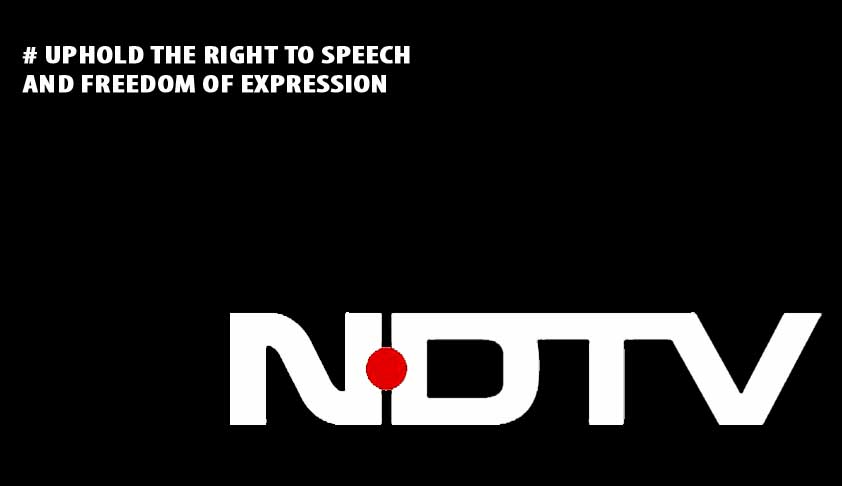- Home
- /
- Top Stories
- /
- NDTV India One-Day Ban Put On Hold
NDTV India One-Day Ban Put On Hold
LIVELAW NEWS NETWORK
7 Nov 2016 8:04 PM IST
The one-day ban on NDTV's Hindi channel ‘NDTV India’ on Monday was put on hold by Information and Broadcasting (I&B) Minister Venkaiah Naidu after the Supreme Court agreed to hear the TV news channel's appeal on Tuesday against the ban.Last week, NDTV India was ordered to stop broadcasting for 24 hours on Wednesday with the government accusing it of broadcasting sensitive details...
Next Story



